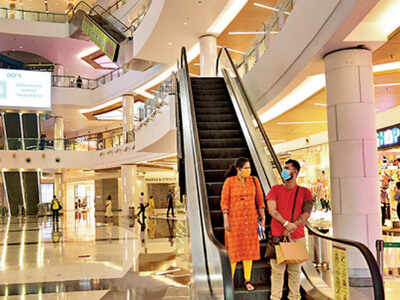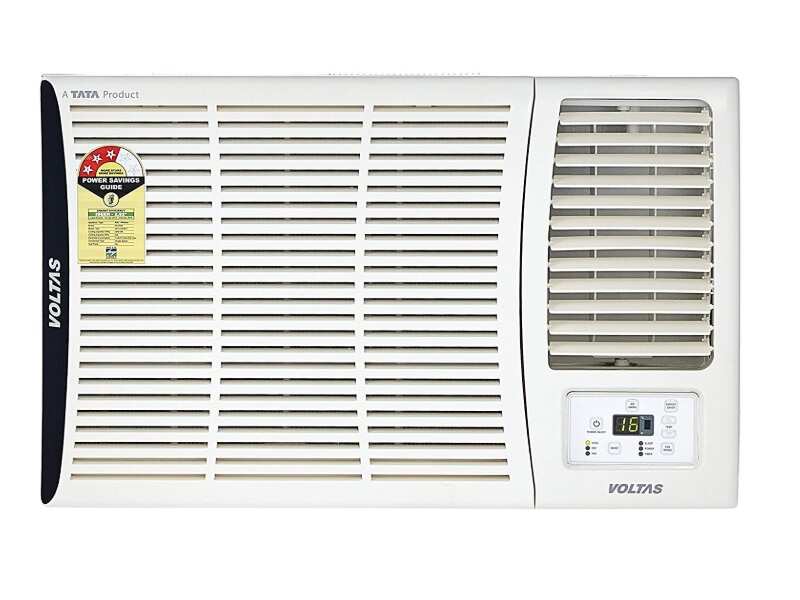
KOLKATA: The massive loss of business during the prolonged Covid-induced lockdown has forced city malls and retailers to go back to the negotiating table to come up with a new revenue model. With footfall down even during Unlock 1.0 and sales at a quarter of pre-Covid days, both stakeholders are in talks to work out a formula that would minimize bloodbath and help each other survive. Most of the retailers have sought a reworked revenue structure that would be in place for the next 6-9 months to help them tide over the crisis.
In pre-Covid times, the malls functioned on three revenue models — rental, revenue-sharing and a limited hybrid model of minimum guarantee and revenue-sharing. The new contracts in the works tilt towards revenue-sharing except some fixed costs like electricity and maintenance. There is another pressing issue that needs to be resolved: the rate of concession during the two months that the malls were shut.
The retailers are mostly in favour of a full revenue-share model for the next 2-3 quarters, said Surekha Bihani, managing director of JLL (east). Hypermarts like Spencer’s, More and Big Bazaar are already in revenue-sharing mode in most of the malls while lifestyle anchor stores like Pantaloons and Shoppers Stop are in a hybrid model with minimum guarantee and revenue sharing, Bihani said.
In newer malls like Quest and Acropolis, all three revenue-share models exist. But the older ones like South City, City Centre and Forum have a lot of retailers in the rental-only mode. According to Bihani, the quantum of revenue-share works out to 3%-5% for hyper stores, 7%-8% for lifestyle stores and 12%-15% for smaller retailers with higher margin.
Sushil Mohta, chairman of Merlin Group that owns Acropolis and is a partner in South City, said some retailers have approached them for a full revenue-share pact for the next couple of months. “We will take a call in the next 2-3 weeks. Acropolis mostly functions on a minimum guarantee-revenue share mode but in South City there are retailers on rental-only contracts,” he said.
Rahul Saraf, managing director of Forum Group that owns Forum Mall, said they were reworking the terms and conditions for the tenants for the next 6-8 months. “For some tenants like Star Bucks and Speciality Restaurants, we have shifted from minimum guarantee to revenue share. But we are telling the retailers that once Covid is over, the terms should change. It is like live and let live,” he said.
Harsh Neotia, chairman of Ambuja Neotia group that owns City Centre I & II also admitted that they were in discussion with the retailers for a change in revenue pattern but added that they might not offer further relaxation to old tenants on already-low rentals. “We are discussing the issue on a case-by-case basis,” he added.
Sanjiv Mehra, VP of Quest Mall, said 90% of the stores had already agreed to their terms and “only 10% of the shops are yet to open”.
The chairman of Shopping Centre Association of India, Amitabh Taneja, said both retailers and mall owners are working together to come out with a solution during these difficult times.
The chairman of Speciality Restaurants, Anjan Chatterjee, said he had already held successful negotiations with Forum and South City. “Forum was first to offer us revenue-sharing and we are in discussion with South City and Acropolis too,” he added.
Manish Agarwal, head (east) of Future Group that owns Big Bazaar, said it is asking malls for easier terms. “We hope it will be resolved in next few days,” he added.
Prasoon Mukherjee, chairman of Universal Success, the owner of TGIF in India, said it is operating on a revenue-share model in Kolkata.
In pre-Covid times, the malls functioned on three revenue models — rental, revenue-sharing and a limited hybrid model of minimum guarantee and revenue-sharing. The new contracts in the works tilt towards revenue-sharing except some fixed costs like electricity and maintenance. There is another pressing issue that needs to be resolved: the rate of concession during the two months that the malls were shut.
The retailers are mostly in favour of a full revenue-share model for the next 2-3 quarters, said Surekha Bihani, managing director of JLL (east). Hypermarts like Spencer’s, More and Big Bazaar are already in revenue-sharing mode in most of the malls while lifestyle anchor stores like Pantaloons and Shoppers Stop are in a hybrid model with minimum guarantee and revenue sharing, Bihani said.
In newer malls like Quest and Acropolis, all three revenue-share models exist. But the older ones like South City, City Centre and Forum have a lot of retailers in the rental-only mode. According to Bihani, the quantum of revenue-share works out to 3%-5% for hyper stores, 7%-8% for lifestyle stores and 12%-15% for smaller retailers with higher margin.
Sushil Mohta, chairman of Merlin Group that owns Acropolis and is a partner in South City, said some retailers have approached them for a full revenue-share pact for the next couple of months. “We will take a call in the next 2-3 weeks. Acropolis mostly functions on a minimum guarantee-revenue share mode but in South City there are retailers on rental-only contracts,” he said.
Rahul Saraf, managing director of Forum Group that owns Forum Mall, said they were reworking the terms and conditions for the tenants for the next 6-8 months. “For some tenants like Star Bucks and Speciality Restaurants, we have shifted from minimum guarantee to revenue share. But we are telling the retailers that once Covid is over, the terms should change. It is like live and let live,” he said.
Harsh Neotia, chairman of Ambuja Neotia group that owns City Centre I & II also admitted that they were in discussion with the retailers for a change in revenue pattern but added that they might not offer further relaxation to old tenants on already-low rentals. “We are discussing the issue on a case-by-case basis,” he added.
Sanjiv Mehra, VP of Quest Mall, said 90% of the stores had already agreed to their terms and “only 10% of the shops are yet to open”.
The chairman of Shopping Centre Association of India, Amitabh Taneja, said both retailers and mall owners are working together to come out with a solution during these difficult times.
The chairman of Speciality Restaurants, Anjan Chatterjee, said he had already held successful negotiations with Forum and South City. “Forum was first to offer us revenue-sharing and we are in discussion with South City and Acropolis too,” he added.
Manish Agarwal, head (east) of Future Group that owns Big Bazaar, said it is asking malls for easier terms. “We hope it will be resolved in next few days,” he added.
Prasoon Mukherjee, chairman of Universal Success, the owner of TGIF in India, said it is operating on a revenue-share model in Kolkata.

Coronavirus outbreak
Trending Topics
LATEST VIDEOS
City
 UP: Woman gang-raped in bus on the way to GautamBuddha Nagar from Pratapgarh, 1 arrested
UP: Woman gang-raped in bus on the way to GautamBuddha Nagar from Pratapgarh, 1 arrested  5-star Taj Mansingh in the heart of Lutyens' Delhi to become Covid-19 facility, five more hotels named
5-star Taj Mansingh in the heart of Lutyens' Delhi to become Covid-19 facility, five more hotels named  India-China clash at LAC: 'Boycott Chinese products' chorus grows, massive protests outside Chinese Embassy in Delhi
India-China clash at LAC: 'Boycott Chinese products' chorus grows, massive protests outside Chinese Embassy in Delhi  Andhra Pradesh: Remains of ancient Lord Shiva temple found during sand mining process in Nellore
Andhra Pradesh: Remains of ancient Lord Shiva temple found during sand mining process in Nellore
More from TOI
Navbharat Times
Featured Today in Travel
Get the app





